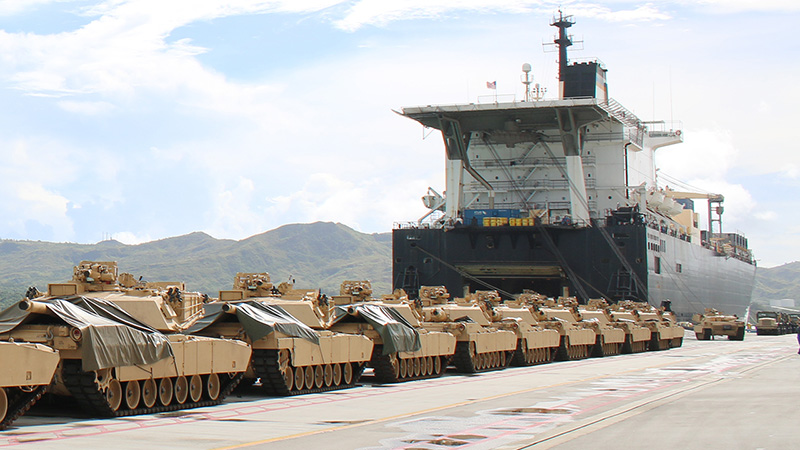Arms Transfers to MENA: Data Trends and Implications for Human Rights and Security

Date/Time
Date(s) - 07/23/2024
10:00 am - 11:30 am
Categories
Cost:
USD
Contact Person:
Email:
Website:
https://arabcenterdc.org/event/arms-transfers-to-mena-data-trends-and-implications-for-human-rights-and-security/
Phone:
Organization:
Arab Center Washington DC
VIRTUAL
Panelists
Sarah Harrison: Senior Analyst in the U.S. Program, International Crisis Group
Waleed Hazbun: Richard L. Chambers Professor of Middle Eastern Studies, Department of Political Science, University of Alabama; Non-resident Fellow, Arab Center Washington DC
Zain Hussain: Researcher, SIPRI Arms Transfers Programme
Shana Marshall: Associate Director & Assistant Research Professor, Institute for Middle East Studies, The George Washington University
Moderator
Tamara Kharroub: Deputy Executive Director and Senior Fellow, Arab Center Washington DC
About this Webinar:
The last decades have seen violent conflicts erupt and expand across the world, especially the Middle East and North Africa region, with dire consequences for humanitarian conditions, human security, and international law. The issue of arms trade and the flow of weapons is increasingly pivotal in enabling and facilitating these wars. Data from the latest SIPRI Arms Transfers Database (updated March 2024) shows that arms exports by the United States, the world’s largest arms supplier, rose by 17 per cent between 2014–18 and 2019–23, and that in 2019–23 the largest share of US arms exports went to states in the Middle East (38 per cent). Four Middle Eastern states (Saudi Arabia, Qatar, Kuwait, and Israel) were among the top 10 recipients of US arms in 2019–23.
Arab Center Washington DC (ACW), in partnership with the Arms Transfers Programme of the Stockholm International Peace Research Institute (SIPRI), are organizing this webinar to present highlights from the latest data and discuss their implications for human rights, humanitarian conditions, and international law. What are the trends and patterns in arms exports to MENA countries? Who are the major players in the MENA and internationally? How are conflicts and wars in MENA (such as in Gaza, Libya, Sudan, Yemen, and Syria) being sustained and perpetuated by these transfers and by insufficient transparency and accountability? What is the role of international arms transfers in exacerbating humanitarian disasters and the lack of human security in MENA? Are states (both arms importers and exporters) complying with their domestic laws and international commitments such as arms embargoes or the Arms Trade Treaty? What enforcement mechanisms exist or are needed to achieve compliance and respect for established rules and regulations? What are some recommendations to ensure greater transparency and responsible international arms transfers?









